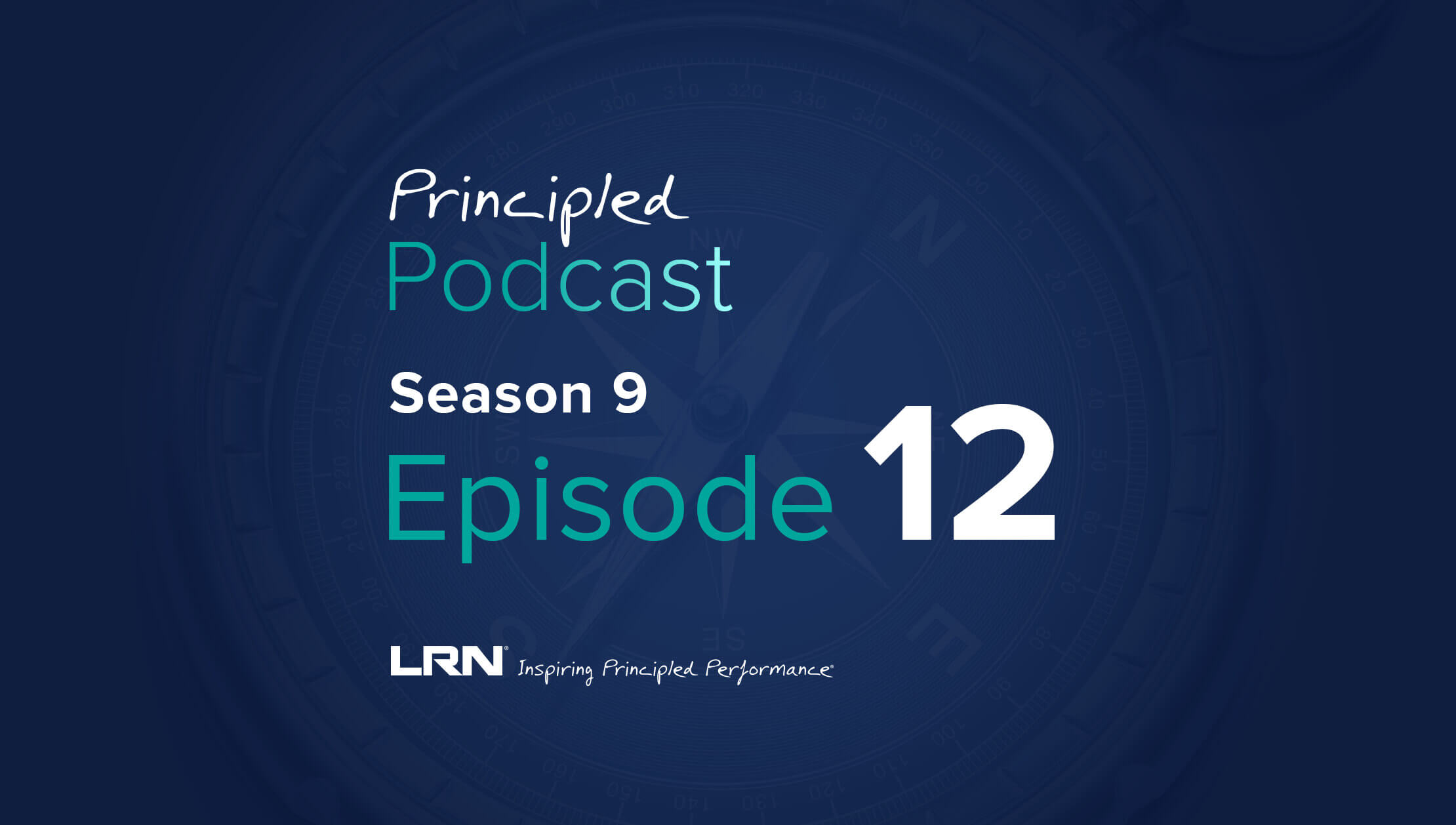
What you’ll learn on this podcast episode
When it comes to driving ethical behavior in organizations, many ethics and compliance programs are beginning to focus more on leveraging company values than relying primarily on rules. But what does taking a values-based approach look like in practice, especially if you’re a multinational organization? How do talk about it with a wide range of employee populations? In this episode of LRN’s Principled Podcast, Susan Divers is joined by Gabriela Del Castillo, the chief ethics and compliance officer at Arca Continental, to discuss the importance of creating a respectful workplace and the role that E&C plays in developing ethical culture.
Guest: Gabriela Del Castillo

Gabriela Del Castillo is the global chief ethics and compliance officer of Arca Continental, the second-largest Coca-Cola bottler in Latin America—and one of the largest in the world. She leads the construction of the company’s corporate sustainability through the management of ethical and compliance risks. In addition, she designs mitigation strategies—including policies, controls, and procedures—as well as communication and training initiatives for Arca’s ethics and compliance program. Gabriela also serves as the secretary of the Audit and Corporate Practices Committee for the organization’s board of directors.
Prior to joining Arca, Gabriela was the regulatory affairs corporate manager at the food and beverage services company Empresas Polar. In this role, she helped the organization adopt risk management and compliance processes to anticipate risks and opportunities in the regulatory and legal fields. She also designed strategies to minimize costs or capture savings, based on a deep understanding of the company’s operations and stakeholders. Before that, Gabriela worked as a legal analyst for Siderúrgica del Orinoco, C.A. SIDOR, a Venezuelan steel corporation.
Gabriela earned a master’s degree in international legal studies from Georgetown University and graduated magna cum laude from Universidad Central de Venezuela. She also received a marketing and innovation diploma from Instituto de Estudios Superiores de Administración IESA in 2017.
Host: Susan Divers
Susan Divers is a senior advisor with LRN Corporation. In that capacity, Ms. Divers brings her 30+ years’ accomplishments and experience in the ethics and compliance area to LRN partners and colleagues. This expertise includes building state-of-the-art compliance programs infused with values, designing user-friendly means of engaging and informing employees, fostering an embedded culture of compliance and substantial subject matter expertise in anti-corruption, export controls, sanctions, and other key areas of compliance.
Prior to joining LRN, Mrs. Divers served as AECOM’s Assistant General for Global Ethics & Compliance and Chief Ethics & Compliance Officer. Under her leadership, AECOM’s ethics and compliance program garnered six external awards in recognition of its effectiveness and Mrs. Divers’ thought leadership in the ethics field. In 2011, Mrs. Divers received the AECOM CEO Award of Excellence, which recognized her work in advancing the company’s ethics and compliance program.
Mrs. Divers’ background includes more than thirty years’ experience practicing law in these areas. Before joining AECOM, she worked at SAIC and Lockheed Martin in the international compliance area. Prior to that, she was a partner with the DC office of Sonnenschein, Nath & Rosenthal. She also spent four years in London and is qualified as a Solicitor to the High Court of England and Wales, practicing in the international arena with the law firms of Theodore Goddard & Co. and Herbert Smith & Co. She also served as an attorney in the Office of the Legal Advisor at the Department of State and was a member of the U.S. delegation to the UN working on the first anti-corruption multilateral treaty initiative.
Mrs. Divers is a member of the DC Bar and a graduate of Trinity College, Washington D.C. and of the National Law Center of George Washington University. In 2011, 2012, 2013 and 2014 Ethisphere Magazine listed her as one the “Attorneys Who Matter” in the ethics & compliance area. She is a member of the Advisory Boards of the Rutgers University Center for Ethical Behavior and served as a member of the Board of Directors for the Institute for Practical Training from 2005-2008.
She resides in Northern Virginia and is a frequent speaker, writer and commentator on ethics and compliance topics. Mrs. Divers’ most recent publication is “Balancing Best Practices and Reality in Compliance,” published by Compliance Week in February 2015. In her spare time, she mentors veteran and university students and enjoys outdoor activities.










